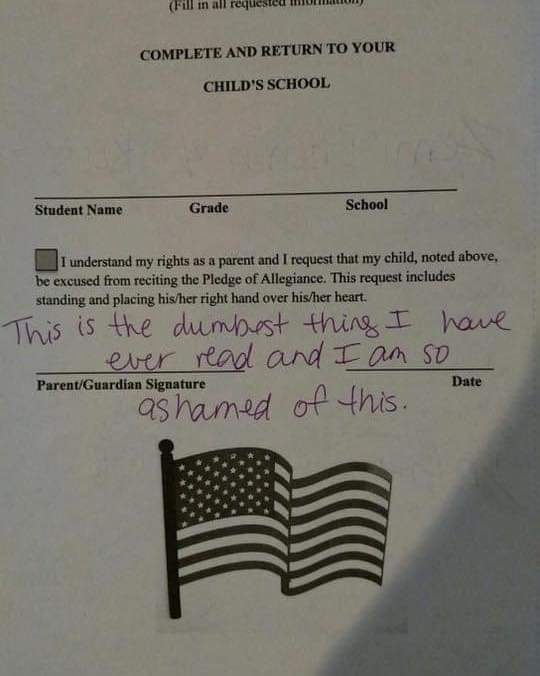
Patriotism isn’t about compulsory actions or rituals; it’s about the freedom to choose how to express love for one’s country. This idea is perfectly illustrated by a form that allows parents to decide whether their child participates in the Pledge of Allegiance—a reminder of the power of choice in a truly free society.
Personal freedom is the foundation of democracy, offering individuals the right to follow their own beliefs without pressure or coercion. For many, reciting the Pledge symbolizes love for the country and national unity. However, genuine patriotism is not about making these gestures obligatory; it’s about embracing the freedom that lets each person decide how to show their loyalty.
The handwritten note on this form reflects someone standing up for their values—this, too, is a form of patriotism. By defending personal beliefs, they demonstrate a commitment to the principles of freedom and individual expression. The real lesson here is that respecting different choices fosters unity, rather than undermining it.
Patriotism isn’t a uniform concept—it’s about safeguarding the liberties that allow people to express themselves in diverse ways. Whether one chooses to recite the Pledge or not, what matters most is that the choice comes from personal belief. Respecting that freedom is the truest reflection of democratic values.